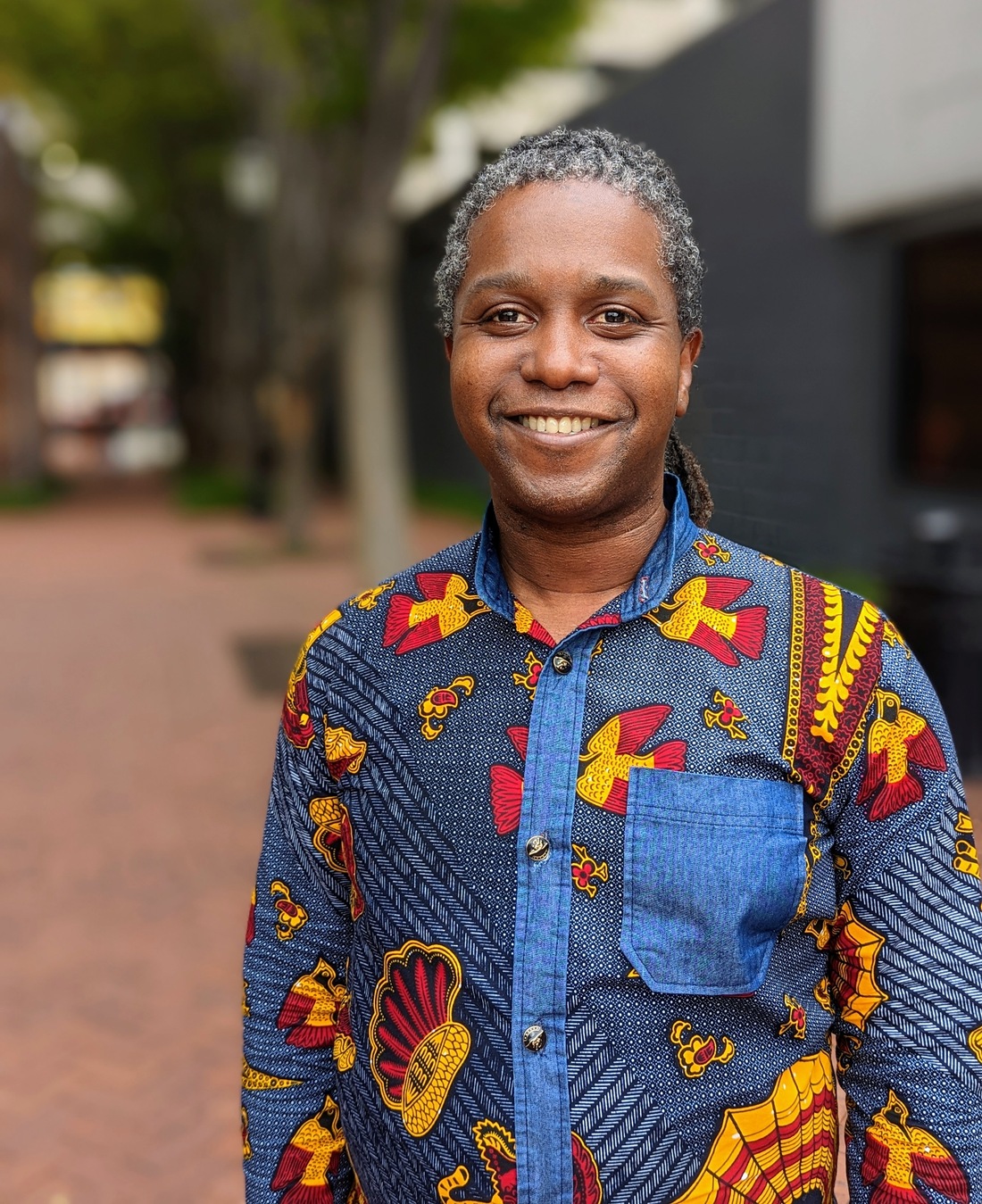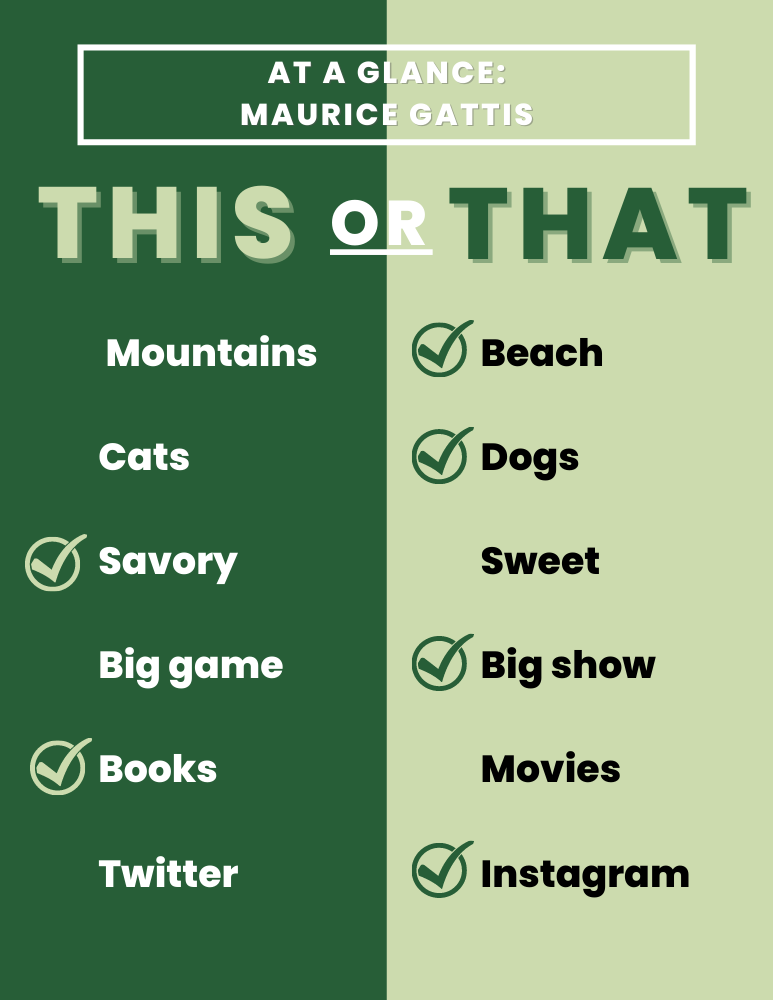From the Fashion Runways of Washington DC to the Inclusivity Leadership of South Africa, VCU’s Maurice Gattis is Searching for a Spark in People
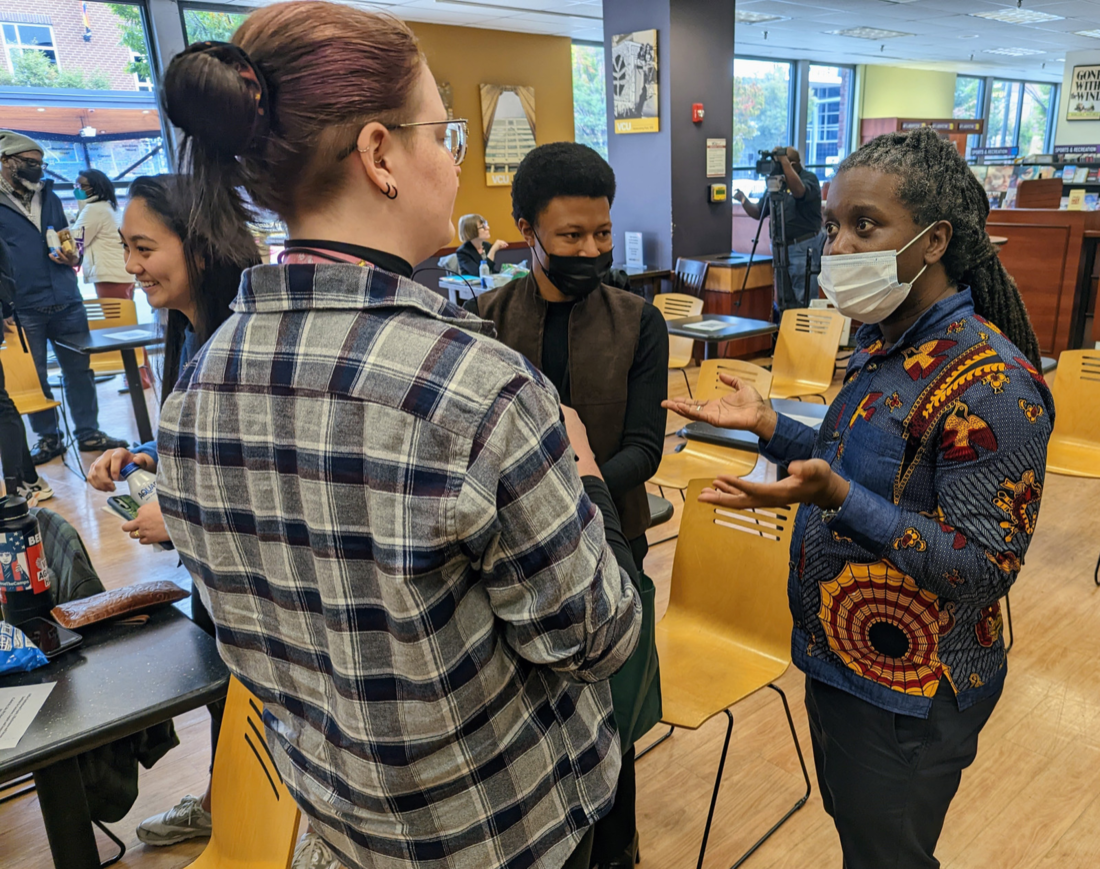
Two-Time Fulbright Scholar Says Representation and Mentoring are Keys to Success
Dr. Maurice N. Gattis always highlights something positive when he evaluates student work. Gattis, an associate professor in the VCU School of Social Work, and an iCubed Scholar in the Intersections in the Lives of LGBTQIA+ Communities core says his intention isn’t to soothe egos today but instead spark creative ideas for tomorrow.
“Be sure to point out something that someone does well. I point it out because I don’t know what seed that sparks. I think that’s very important,” Gattis said.
Gattis knows the power of that practice first-hand. Afterall, similar encouragement from his mentor, retired Columbia University professor, Dr. Barbara L. Simon, launched his entire academic career. Gattis had completed a project in Simon’s advocacy class about the intersection of LGBTQ+ youth and homelessness. While his work earned an A, it was what Simon wrote on the paper that changed his life.
“Dr. Simon, on my paper, wrote ‘how ably you have handled this project and research. There isn’t much [existing] research. I think it’s something you should pursue. You do it well,’” Gattis said. “Had she not said that I would have never thought about pursuing a Ph.D program. That was the subject of my dissertation. It was the subject of my first Fulbright. It’s the subject of this current Fulbright. It’s a subject of this current grant that I’m doing.”
Nurturing that Spark
Gattis, who is mentoring currently half-a-dozen students, said he reflects on that lesson in how he guides students.
“It allows me to think about, in the presence of a whole person, how I might identify some individual strain of something that needs to be cultivated, and it may be the one thing,” he said.
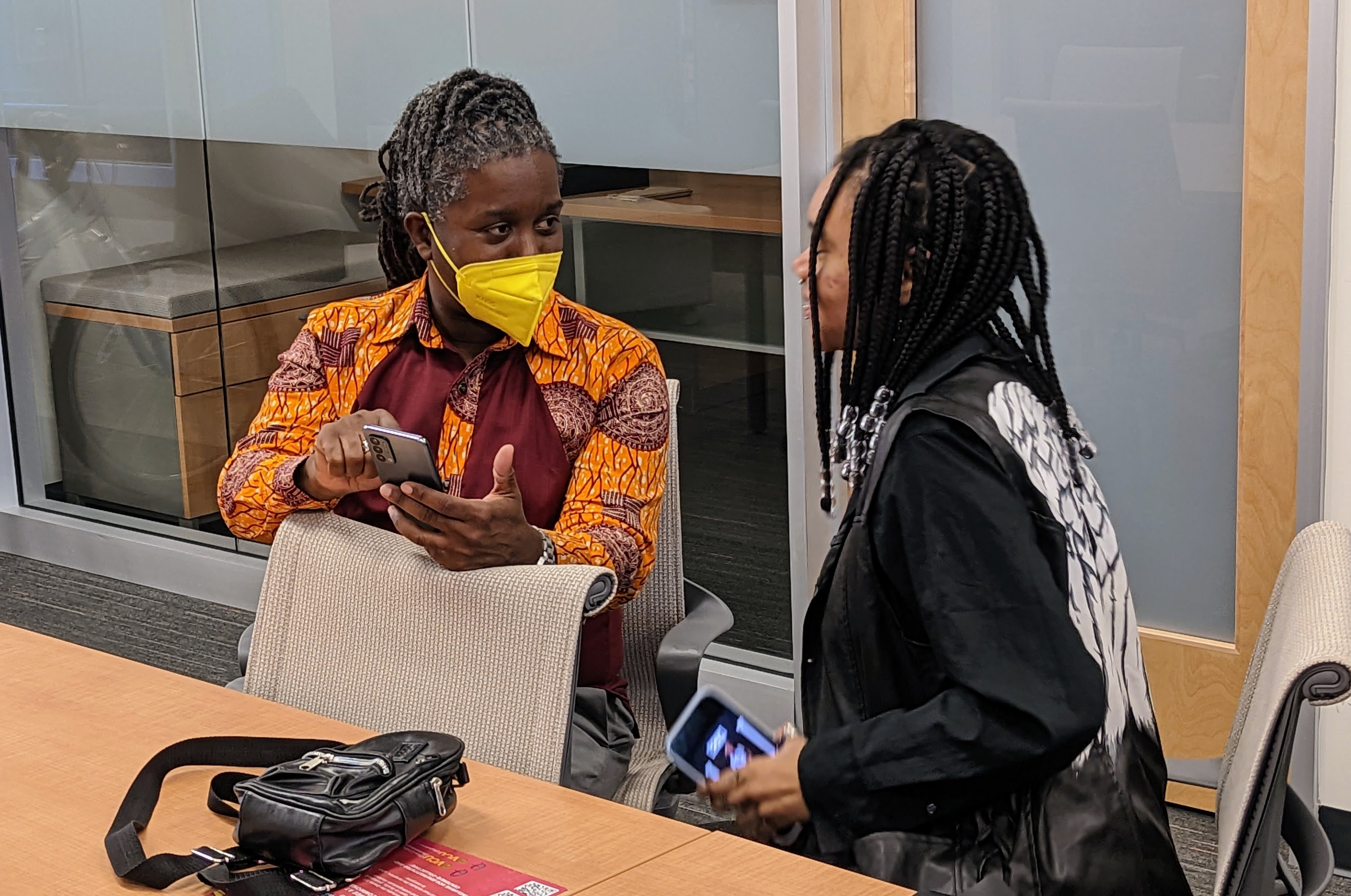
Simon’s influence doesn’t stop there for Gattis. He said he often ponders what it meant for her to be one of, if not the first, openly lesbian tenured professors at Columbia University School of Social Work, and what it means for LGBTQIA+ students to see that kind of representation in a university’s faculty.
“I’m out as a faculty member. I think that visibility matters,” Gattis said. “What excites me? It’s this: I talk about things like this, that’s sometimes taboo, and people find the connection and are able to open up. It really is empowering and liberating for people to be able to engage in conversations, in a way that’s free. That’s my job and I’m protected to do that. That’s illuminating for our society, and I enjoy that.”
Searching for Kewpie
Gattis is preparing to spend the spring semester in Cape Town, South Africa on his second Fulbright Scholarship. He said the opportunity to research the country through an LGBTQIA+ lens allows him to also reframe the way Americans often think about the African continent as a whole.
“I was studying Cape Town, thinking about South Africa because it’s the first country in the world to have protections for LGBTQ+ people in its constitution. So, I thought what a wonderful opportunity to think about Africa in a context to go and learn, and exchange ideas to reframe Africa, because often we think, go to Africa to serve Africa, right? Instead, let’s go and learn this piece of it,” Gattis said.
Gattis said he wants to learn more about Kewpie, a Black, transgender hair dresser who lived and flourished during aparthied in a Cape Town community from which Black people had been forcibly removed. Gattis first learned of Kewpie during a planning visit last summer.
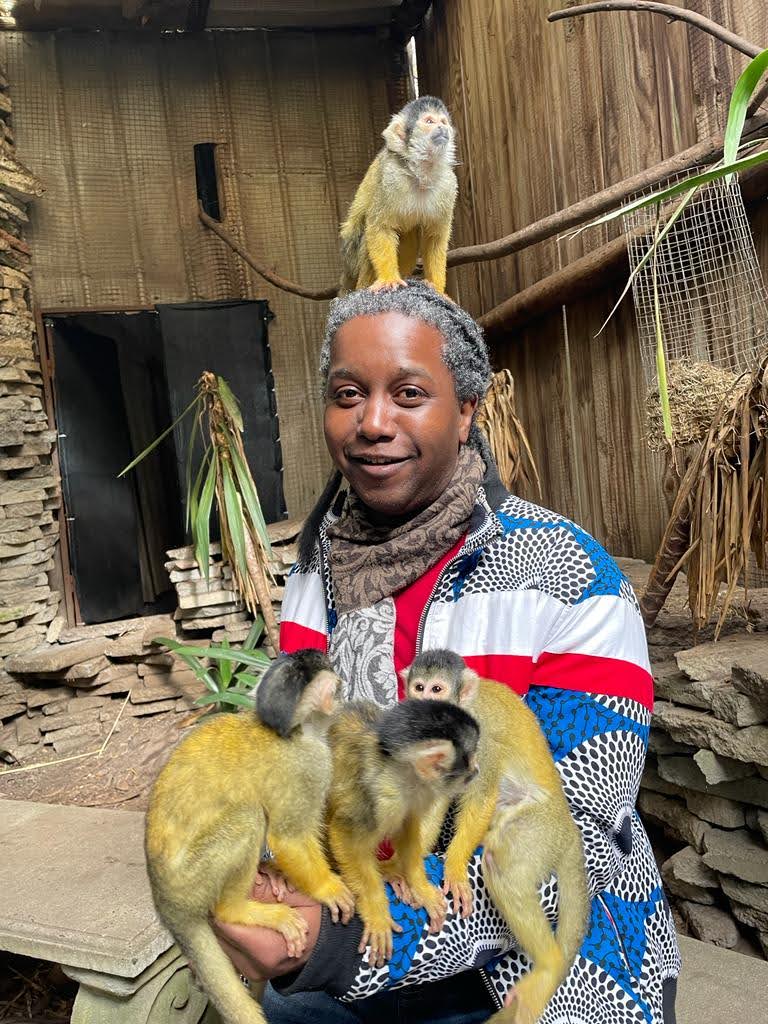
“We’re going to look at District 6 through the lens of Kewpie. Kewpie had a hair salon in District 6. We’re going to go to Kewpie’s house and see where Kewpie lived – showing that there was a living, thriving transgender colored women in South Africa, openly. And that’s not even the whole story,” Gattis said.
Gattis is trying to bring along students for a part of that trip. He has built a collaboration between the The Queer Research and Advocacy Center, known as the Q Collective, the School of Social Work, and the VCU Global Education Office to offer a study abroad opportunity for Spring Break 2023. Gattis hopes to turn that into an annual opportunity for students.
The ten-day trip, scheduled for March 4-12, will also include visits to a contemporary art museum to see works by queer artists and Robbenn Island, where the late Nelson Mandela was held as a political prisoner for 27 years.
Q Collective
Gattis says the Q collective is one of the things that allows VCU to live up to its branding as an uncommon university.
“The idea that there is a clear research and advocacy center and that it serves students all the way to faculty with tenure, and a multicultural arts and student affairs center that is focused on student services – the existence of both of them. The fact that there were the cluster hires of LGBT scholars to come in, and then the fact that there is an iCubed LGBT core that then intentionally hired a different set of scholars,” Gattis said. “This is my third university and I’ve not seen that [elsewhere.] I’m not experienced with that and I find that incredibly stimulating.”
Gattis currently serves as the senior advisor to the Q Collective.
“For all intents and purposes, he functions as a co-director,” said Dr. Archanna A. Pathak, the interim director of the Q Collective and special assistant for special projects at the Office of Institutional Equity, Effectiveness and Success (IES).
“Maurice exemplifies community-engaged work in one of the best ways that I’ve ever seen. He really knows how to use that as the lens from which to build research, and how to use research for greater social change. That to me is super powerful and he’s a very thoughtful advocate,” Pathak said.
On the Runway
That thoughtfulness seems to infuse everything Gattis does, be it scholarly work or his hobby of designing clothes. He runs his own clothing line, called Fort Mosé 1738, which he named for America’s first legally sanctioned Black community in America and the year it was established. Gattis designs the outfits, which are made from contemporary fabric created in Ghana.
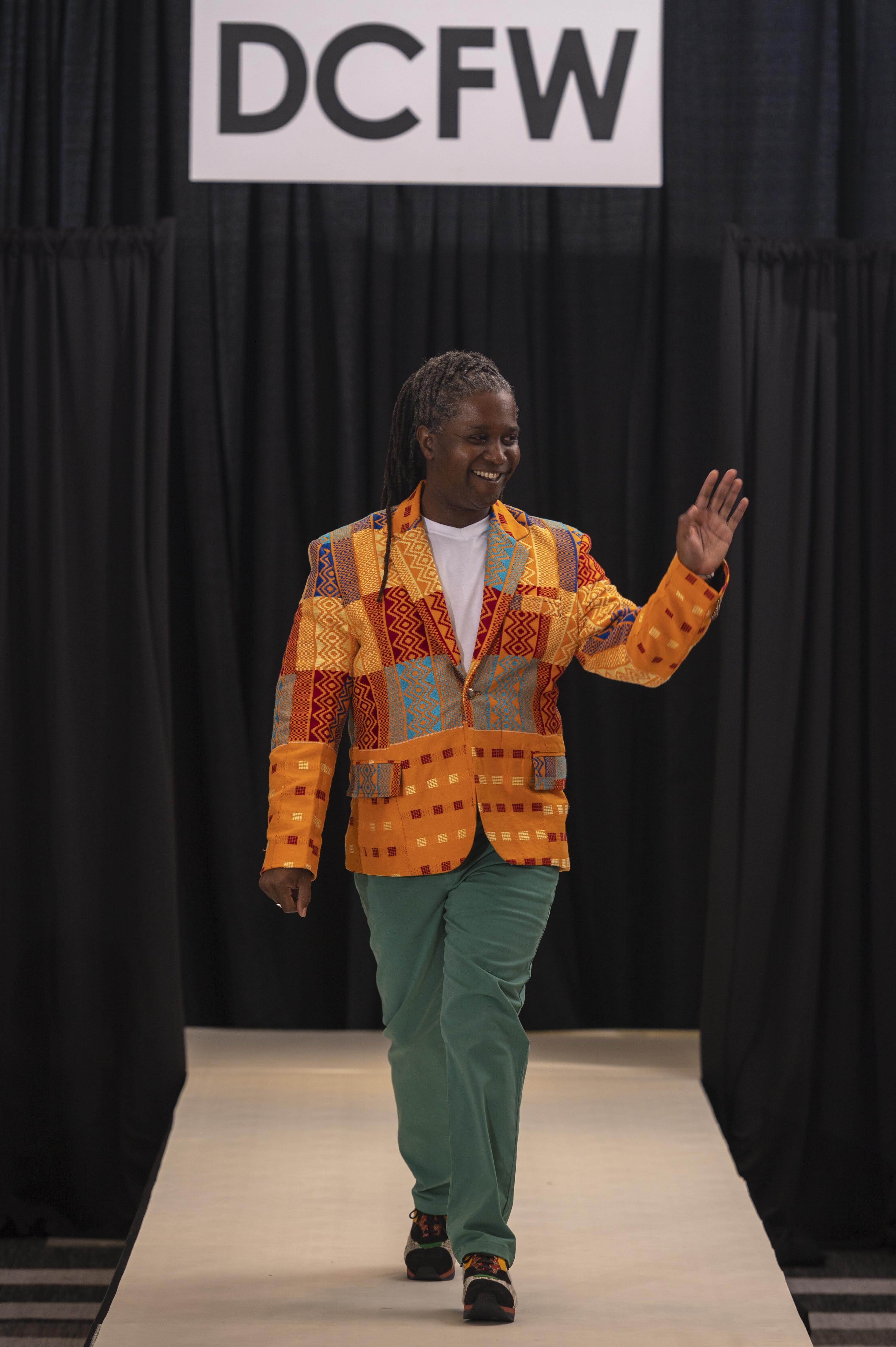
“I get to wake up in the morning and think about something and either engage in activity or design a research project to address it or engage in something fun that I want to do for a hobby – just possibility,” said Gattis.
Nearly a dozen pieces of Gattis’s clothing line were featured on the runway during Saturday night of this year’s Washington DC Fashion Week. One of the pieces, of course, was modeled by a VCU student – one more way Gattis is building connection between the campus and the community.
That’s just one of the many unexpected and dynamic connections that attract scholars like Gattis to VCU.
“You don’t just find incredible faculty and recruit them here and then retain them and then silo them. In Maurice’s case, we were able to say to him, let’s build community and that’s part of what you do here too. So I think that’s an important piece of it,” said Pathak.
Editor’s Note: Diversity Drives Excellence Profiles introduce you to some of the diverse faculty and staff members whose work makes VCU such an uncommon and amazing university. The Office of Institutional Equity, Effectiveness and Success (IES) publishes the profiles on its blog and promotes them across its social media channels. Please send questions or comments about this series to ies@vcu.edu.
Categories Diversity, iCubed, Q Collective